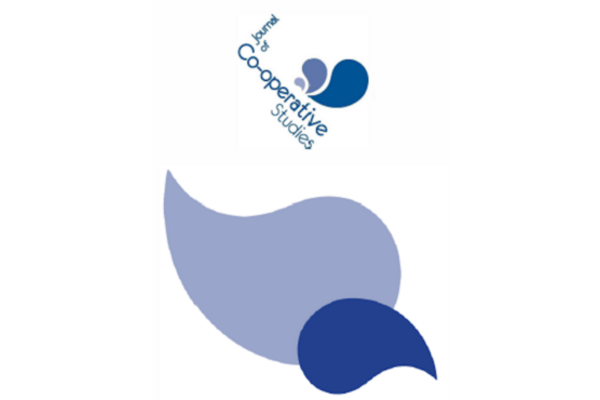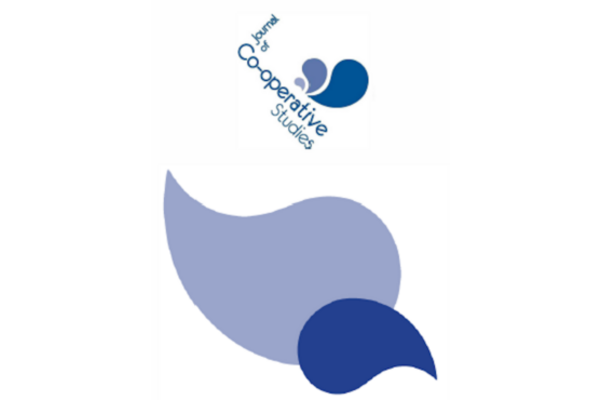Guest Editorial
UKSCS is proud to part of an international network of co-operatives and co-operators, and this special edition showcases some of the research outputs emerging from the Co-operative Education conference organised by one of our sister organisations — the Co-operative College. The College, based in Manchester, UK, is an educational charity dedicated to the promotion of co-operative values, ideas, and principles within co-operatives, communities, and society. We would like to thank the guest editors from the College for their editorial contributions to this special edition:
Dr Cilla Ross, Dr Sarah Alldred, Dr Amanda Benson. Co-operative College, Manchester, UK.
Peer reviewed papers
Learning together: The Co-operative Union, the Workers’ Educational Association and the National Council of Labour Colleges 1918-1939
Pushpa Kumbhat, pp. 5-20
At the heart of co-operative education was the will to create a Co-operative Commonwealth based on Robert Owen’s New View of Society (Owen, 1966). This article will consider how the vision of a Co-operative Commonwealth was shared and reciprocated by the Workers’ Educational Association (WEA) and the National Council of Labour Colleges (NCLC) and how the three organisations worked together to achieve their own educational programmes. By connecting with the WEA and the NCLC, the Co-operative Union had a valuable means of adapting the co-operative character to the new labour movement politics of the inter-war era. How well it succeeded in this is the subject of this article. Though it is well known that the Co-operative Union, the WEA and the NCLC all aimed to empower working class people through adult education, little has been written about how the three organisations interacted. This article explores the relationship and connections between the Co-operative Union, the WEA and the NCLC. It spotlights a sub-culture of adult workers’ education between the Wars and identifies what values the educational organisations held in common, as well as where they diverged.
Repositioning student voice in school: The process of ‘Becoming Co-operative’
Deborah Ralls, pp. 21-29
It is widely acknowledged that schools need to take account of student voice, yet in an education landscape where notions of “voice” are increasingly defined by individualistic notions of consumer satisfaction, student voice can all too often take the form of “you said, we did” — with “we” meaning the teaching staff and the school senior leadership team. This article stems from a recent case study in an English co-operative school that brings to the surface what happens when a school attempts to do things differently — as a direct result of its decision to become a co-operative school. The study draws on data collected from observations, staff interviews and student focus groups to explore differing perceptions of what student voice looks like in practice and to identify the spaces of possibility for transformation from passive, individualistic forms of student voice to new imaginaries that promote student voice as agentic and relational. The findings provide an insight into the changes in staff‑ student relationships and shifts in power and positionality that have occurred as a direct result of becoming a co-operative school, exploring the potential for schools to develop collective ownership of the education process (Facer et al, 2011).
Learning together: Foucault, Sennett and the crisis of the co-operative character
Keith Crome and Patrick O’Connor
In this article, we argue that it is necessary to think of co-operation not simply as a skill, but as a virtue, and consequently that what distinguishes a genuine co-operative pedagogy is that it is about forming habits that are virtues. We begin by examining Richard Sennett’s account of co-operation in Together. We find in Sennett’s assessment of the predicament afflicting co-operation in contemporary capitalist economies an invitation to reflect on the formation of the co-operative character. In the subsequent two parts of the article we look critically at the dominant value of post-Enlightenment education — the aspiration to create autonomous learners, using the work of Michel Foucault on education. Foucault offers a critique of the manner in which the Enlightenment values of transparency, instrumentalism and autonomy create students that are isolated rather than co-operators. However, while isolating the problem of autonomy, Foucault does not provide any overt alternative reframing of the pedagogical experience. Thus, we attempt to reposition the question of autonomy in line with an argument for the benefits of co-operative character: autonomy emerges from co-operation not from isolation. Finally, we offer a brief genealogy of Robert Owen’s early views about educational reform, with the aim of highlighting the ambiguity of his proposals and the legacy they left. We conclude by arguing that it is critical to maintain that co-operation is a phronetic virtue because co-operation goes all the way down through our being: being a co-operator is not a skill but who we are.
Business Chair of Co-operative Enterprises: Undergraduate education programme in a public private partnership.
Simon Berge, pp. 43-53
The education provided to undergraduate business students at Canadian Universities has been strongly focused on capitalist ideology. At the University of Winnipeg a concerted effort has been made to introduce alternative business models such as co-operatives through the development of a Business Chair of Co-operative Enterprises (Business Chair). The Business Chair is based within the Business and Administration Department, which is part of the Faculty of Business and Economics, making it possible to introduce new ideologies to undergraduate business students. By introducing alternative ideologies business students can critically assess the basic precepts of the capitalist system. In order to implement the Business Chair programme, partnerships needed to be formed with government, community development groups and the co-operative sector. This paper will present the opportunities and challenges of these partnerships in bringing education on the co-operative business model to undergraduate business students within a complex partnership arrangement.
Short papers
Co-operative Research Network.
Amanda Benson, p. 54.
An introduction to the new Co-operative Research Network being developed in the UK by the Co‑operative College with the support of Co-operatives UK and the University of Lincoln.
Book reviews
Mainstreaming Co-operation: An Alternative for the Twenty-First Century? Edited by Anthony Webster, Linda Shaw and Rachael Vorberg-Rugh.
Reviewed by Amanda Benson, pp. 55-57.
A People’s History of Woodcraft Folk. By Phineas Harper.
Reviewed by Dylan Wilby, pp. 57-58.

All works are licensed under a Creative Commons Attribution-NonCommercial 4.0 International License, subject to a 6-month embargo from date of publication in the Journal.










